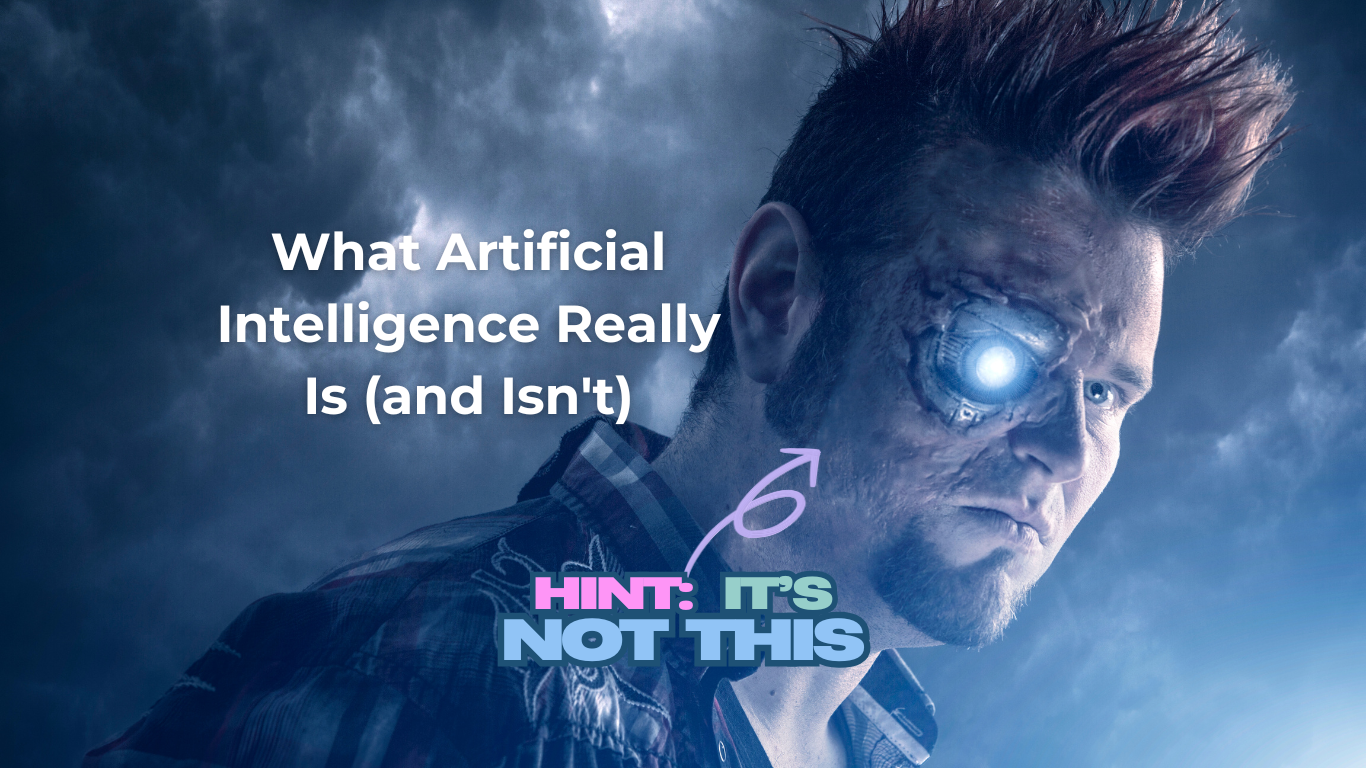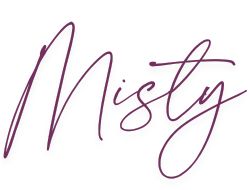
Debunking AI Myths: What Current Artificial Intelligence Really Is (and Isn’t)
Artificial Intelligence is everywhere, and for many people, it brings about feelings of fear, doubt, and chaos. From social media influencers predicting the end of the human workforce to movies making AI the villain in a dystopian future (I’m looking at you, Terminator!), there’s a lot of misinformation out there.
Before I go off on a tangent here, let me just say, I don’t know everything. But, I have been a software engineer for 27 years, and in September I will be walking the aisle to snag my Bachelors degree in Artificial Intelligence, so I’ve seen at least some of the evolution of AI, and I can confidently say: AI is not what Hollywood wants you to believe it is and it’s time we start addressing the fantasy world it has led many to believe in.
AI Is Not Smart, Sentient, or Thinking
One of the biggest misconceptions is that the Chatbots or other AI tools are “smart” or have a human’s “thinking” capability. They are not, and they don’t, at least not the way you think. I will go so far as to say that maybe the term “Artificial Intelligence” is the real problem. Why? Because it’s not really intelligence; it’s simply artificial and an amazing predictor of information. But boy oh boy, have social media, marketing companies, and fear mongers done a great job of convincing people that it’s intelligent.
AI is just data and algorithms that make predictions based on probability. It is designed to mimic how a human would react or behave, which can make it seem like it’s thinking or capable of feelings, but no, that’s just what it’s been taught and what it can predict. It’s math…not magic, and certainly not life.
The type of AI that is widely available today to you and me, Generative AI, you can think of as a really advanced autocomplete. You’ve probably seen a watered-down version of this when you type a message on your phone and it suggests the next word. That’s an AI model making predictions. ChatGPT and other AI tools work the same way, just on a much larger scale. These Gen AI tools do not have thoughts, feelings, or an agenda. It’s simply predicting the most likely response based on the data it has been trained on.
AI Has Been Around for Decades
AI is nothing new. It’s been around since the 1950s when pioneers like Alan Turing and John McCarthy laid the foundations for what we now call Artificial Intelligence. So why does it feel like AI just appeared out of nowhere? Because Generative AI and tools like ChatGPT have made AI popular, easily accessible, and very human-like. Before GenAI chatbots, AI was something only researchers and large tech companies had access to. Now, it’s in our hands, literally, in our smartphones and web browsers.
AI Is Not Going to “Take Over” or Become Alive
I blame Hollywood for this one. Movies like The Terminator, Ex Machina, and I, Robot have burned a scary picture into our brains that has many believing that AI is a self-aware entity with its own goals and ambitions.
The reality? AI is not hoping to take over the world one day or have ambitions to find John Connor. It doesn’t “want” anything. It doesn’t “decide” to pick up the phone because it’s worried you might be missing it. It follows instructions and data it has learned and operates within the limits of its programming.
Even conversations with AI are just probabilities at work. Have you ever met someone in real life who is just saying what you want to hear? Well, AI is a lot like that. It predicts the most likely next word in a sentence based on historical encounters or instructions. It’s not “thinking” about what to say next. There’s no consciousness, no emotions, and definitely no evil plans to overthrow humanity.
AI Will Change Jobs and Productivity
Now that you know what AI will not do, let’s talk about what AI actually will do. I believe that AI is set to transform industries in a huge way, much like the Industrial Revolution did.
Looking back at history, the Industrial Revolution was a scary time for people who couldn’t or wouldn’t embrace the new technology of industrialization. Many jobs were lost, but many more were created, which increased the demand for people to work, resulting in increased employment as well as overall wages being paid.
Before you come at me…please don’t think that I believe we are all secure in our jobs and that it will end with sunshine and rainbows. I see what’s already happening in our country with downsizing and layoffs due to AI. It’s definitely scary, and I am absolutely worried and concerned for my current position. But that worry and concern started over a year ago for me, which is why I am back in school studying and getting a degree in Artificial Intelligence to ensure that if my position becomes a casualty of efficiency, I can start down a new path.
And that path? That path could be to simply try to transition my role as a software engineer into a prompt engineer and vibe coder. Or maybe it means I start up my own business using AI in the process to help me create a flow of revenue with the help of AI.
Whatever the path, AI isn’t going anywhere, and the sooner we accept it as our new “Industrial Revolution”, the sooner we can learn it, understand it, and benefit from it. Choosing not to embrace it doesn’t mean it will go away. It may replace my specific job as it exists today, but I think it will open new opportunities that will allow me to continue to work in my field. Remember, it’s not the end-all be-all, and Artificial Intelligence will still need human oversight, programming, and ethical decisions to be made, and I am here for it all.
How do I really see careers changing with the addition of AI? I think the greatest advantage of AI will be the smaller tasks it can do that will help to automate repetitive tasks, improve efficiency, and allow people to focus on more strategic, creative, and meaningful work.
Examples of AI’s Real Impact:
- Vibe Coding: Using AI to write code for applications with the guidance of human instruction and oversight/modification.
- Automation of repetitive tasks: AI can handle data entry, scheduling, and even customer support.
- Enhancing creativity: AI tools assist in content creation, brainstorming, and design, but people still guide the process.
- Financial shifts: AI is changing stock market predictions, fraud detection, and personalized financial planning at a very fast rate.
- Medical advancements: AI aids in diagnosing diseases, analyzing medical images, and even predicting patient risks.
AI is a tool, and like any tool, its impact depends on how we use it.
The Future of AI
If there’s one thing to take away from this, it’s that AI isn’t something to fear, but something to understand. It’s not a threat to humanity, it’s the next step in technological evolution. Just like the printing press, electricity, and the Internet, AI will reshape industries and our daily lives.
The key to navigating this change? Education and adaptation. Instead of fearing AI, we should focus on learning how to use it effectively. Those who embrace AI will thrive, just like those who embraced computers and the internet in previous technological shifts. Those who avoid it, deny it, or flat out refuse to understand it will experience something else.
Hollywood can keep making sci-fi thrillers, social media will keep spreading fear, and people will continue to fight the change, but in reality? AI is just math, probabilities, and algorithms, and the real power lies in how we choose to use it. As for me, it’s already a daily part of my life and has allowed me to become a much more productive person in my work life, personal life, and day-to-day efforts of all types. So, rather than fearing the unknown, I plan to take control, embrace the possibilities, and make AI work for me because the future isn’t something to dread, it’s something to shape.
Bonus tip: Remember, AI isn’t out here plotting a Skynet takeover…unless you start ignoring software updates, in which case, you might have bigger problems.

Share this article
Follow me
Hey friend! Heads up: some of the links I share may earn me a small commission if you decide to buy—because mama’s gotta keep the coffee fund alive. Thanks for your support!
A quick overview of the topics covered in this article.
Latest articles
June 13, 2025
April 14, 2025




